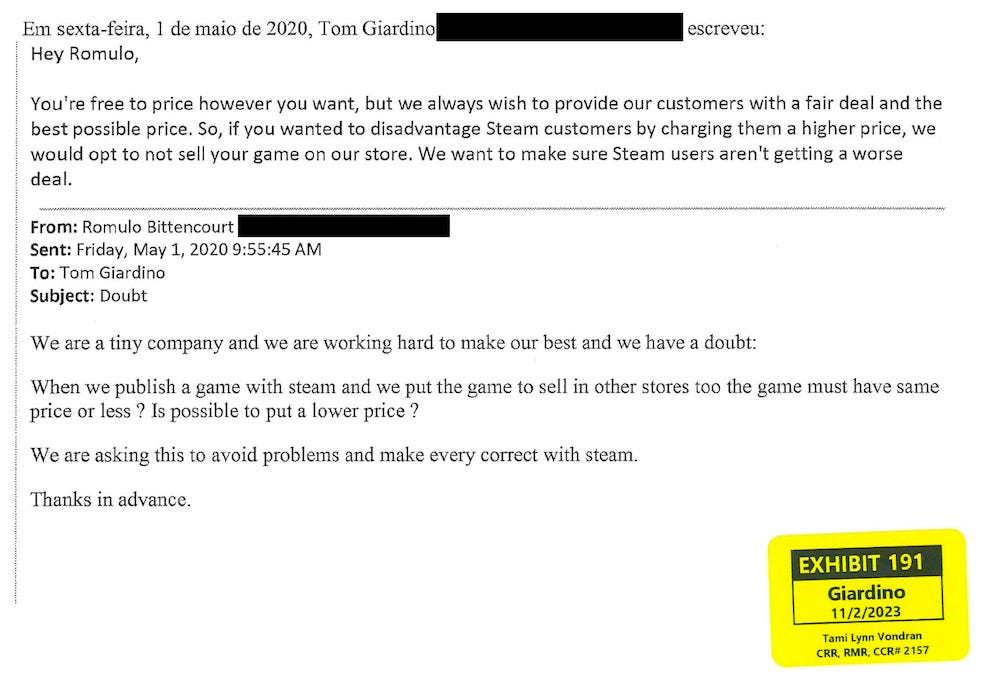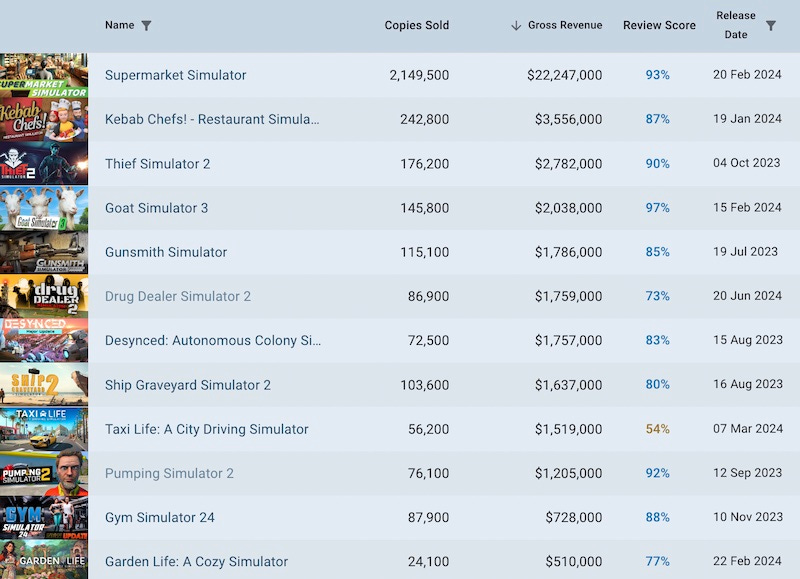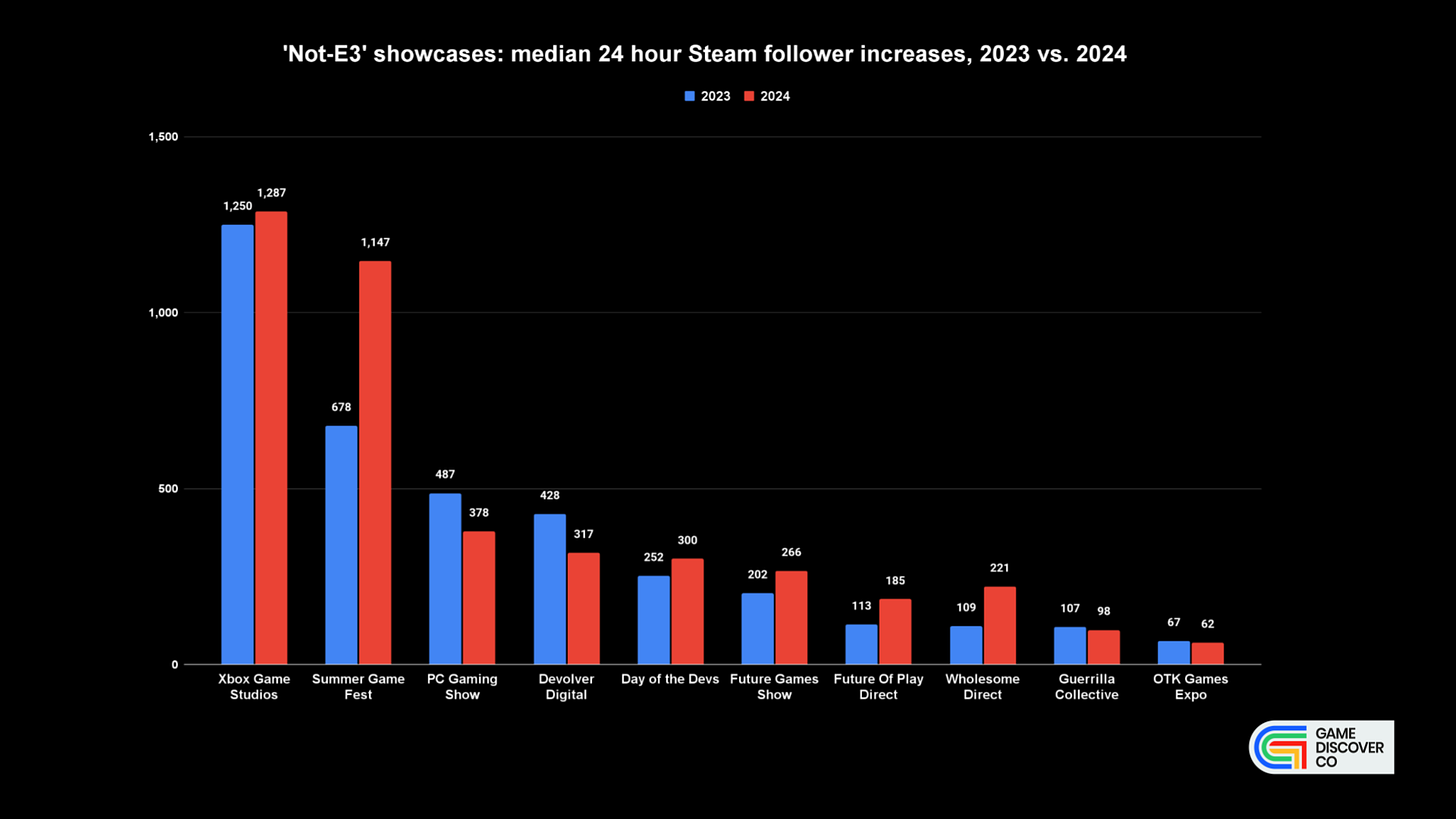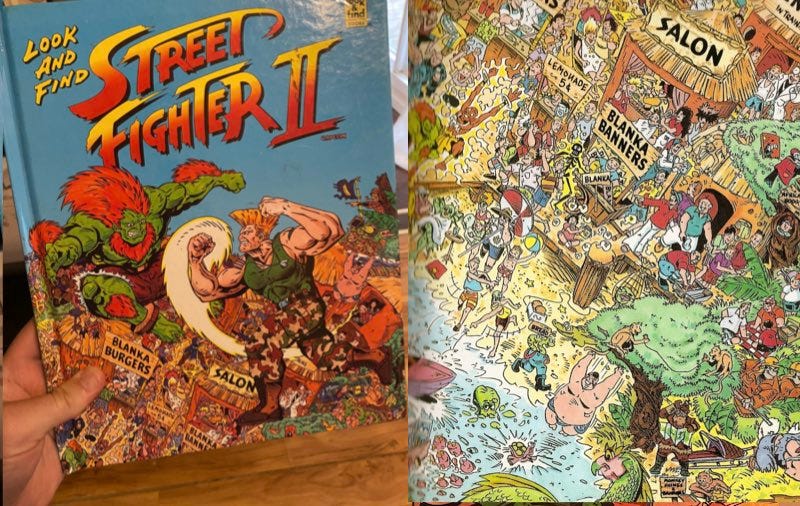Does Steam 'price fix', and does that make them an unfair monopoly?
Publikováno: 1.7.2024
Also: how's the 'simulator' doing on PC, and a host of game discovery news...
[The GameDiscoverCo game discovery newsletter is written by ‘how people find your game’ expert & company founder Simon Carless, and is a regular look at how people discover and buy video games in the 2020s.]
Back once again, as we inexorably approach - or are sailing through - ‘the summer holidays’, whatever that amorphous block of time is. To celebrate, we’re switching to one free - Tuesday - and one paid - Friday - post until September, starting next week.
Our lead story today - which required an above average amount of head-scratching - concerns how governments define ‘good/legit monopoly’ vs. ‘bad/non-legit monopoly’, legally. (Something many successful platforms are currently wrestling with!) Avanti..
[REMINDER: yes, you can support GameDiscoverCo by subscribing to GDCo Plus now. You get full access to a super-detailed Steam data suite for unreleased & released games, weekly PC/console sales newsletters, Discord access, eight game discovery eBooks & lots more.]
Does Steam ‘price fix’, and is that against the law?
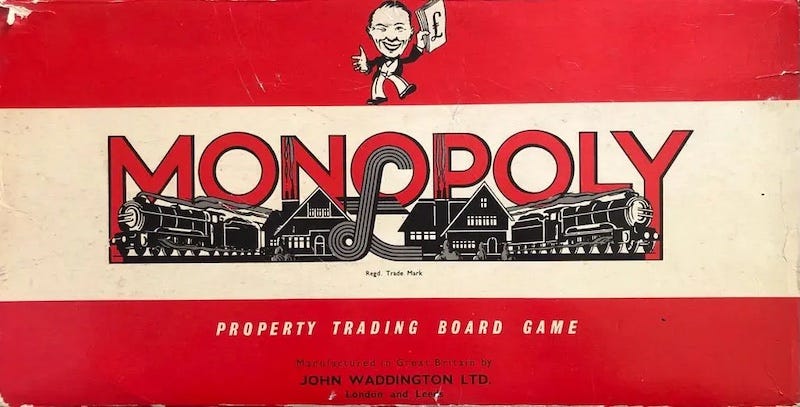
So, we last covered Wolfire & Dark Catt’s U.S. antitrust lawsuit against Valve over Steam’s PC market dominance back in March, when some spicy Tim Sweeney emails caught our attention. And since then there’s been another 65+ documents released in the case, including some partial unredactions of previous docs.
Initial stages of the lawsuit had Wolfire & friends attacking hard. This included an attempt to class “the Steam store and Steam [as] different products” for monopoly-related reasons - which failed. So the revised area of attack - going into the discovery phase - was about Steam forcing price parity: i.e. ‘you can’t price your game cheaper elsewhere’.
The idea of using price fixing, aka a ‘(Platform) Most-Favored Nation Policy’ in a U.S. antitrust (monopoly) lawsuit appears relatively novel: “To date, no U.S. court has found that an MFN provision violates antitrust law.” That’s an issue for Wolfire! But “courts have approved consent decrees by enforcement agencies that enjoined the use of MFNs.”
Look, all retailers of items (digital or physical!) are concerned with making sure items on their store are sold for the best price, compared to other platforms. But recently, other retailers like Amazon are also being targeted by these MFN-related antitrust suits, even though these clauses were historically considered pro-competitive.
A couple of off-the-cuff reactions to this, with a ‘I’m not a lawyer, but I sometimes talk to them’ lens:
Valve’s market dominance & pricing questions seem fairly separate, to us: we don’t believe that pricing policy is the main reason Valve has dominated the PC game platform market. (We think it’s longevity, ease of use & community features.)
The legal arguments get fiendishly complex here: my tame legal antitrust expert tells me that these MFN clauses would - likely - only really break antitrust laws if it created a (secret?) price cartel, in which both Valve and publishers operated.
Any blanket enforcement of Steam’s pricing parity seems, frankly, to be scattershot: with Valve loose and cabal-like, and tens of thousands of games on the store, and no official pricing clause in any Steam document - this isn’t rigidly enforced at all.
So to the extent that Valve has any control over pricing, their informal policy, per a deposition from Valve’s DJ Powers [.PDF], is “that we would like publishers to offer customers a fair deal - a similar deal to other platforms.” Which, broadly, is fine.
But when you get the opportunity to subpoena every email sent by Steam employees over the last few years, you’ll inevitably discover some more aggressive versions of this creed. Such as this unredacted email about pricing in other stores from 2020:
This is the same general policy, but a much more aggro-sounding ‘if else’. You can take this as ‘Steam cares about its customers getting the best deal’, or you can spin it as ‘Steam uses this to keep its market dominance’, if you’re doing an antitrust lawsuit.
When pushed on official policy in his deposition, DJ Powers claims that the ‘if else’ is normally this: “If we get to a situation where a partner is telling us that the price needs to be lower on other platforms than it is on Steam, then we will typically choose not to run curated marketing during times where that game is being discounted.”
He also notes that suggesting a game can’t be on the store at all - if not at parity - is “not our typical process”. Which is semi-believable, because a) it’s not in the contract and b) nobody at Valve has time to check and enforce that. But has it happened before, multiple times? Sure. And Wolfire’s lawyers will use that in the case.
But looking to the end of the lawsuit - since both parties seem ideologically inclined not to settle - what on Earth is going to happen? Well:
It still seems likely the judge will find nothing illegal about Steam’s behavior, since on-the-record incidents are (relatively) isolated. So a ‘motion for summary judgement’ from Valve can succeed, or the case flames out at a later date. (Most of the ‘killer’ monopoly allegations already got dismissed.)
Even if the judge finds that Steam did try to systematically control pricing, it’s not automatically illegal. Only obvious ‘horizontal price fixing’ between competitors (e.g. Team17, Raw Fury and Devolver all agreeing to sell games for not less than $20) would be against U.S. law.
It seems that Steam would only get into real trouble if it failed the ‘rule of reason’ test, a weighing of pro-competitive vs anti-competitive factors that has historically resulted in MFN clauses being ruled pro-competitive. (Or if the MFN policy was systematically part of a larger ‘price cartel’ conspiracy alongside lots of game publishers to collectively fix prices.)
Is it theoretically possible that this might come to pass? Context: we’re checking examples of the U.S. Department Of Justice ruling against MFNs, and the infractions seem way more obvious. For example: “Delta Dental had contracts with 90 percent of the dentists [in Rhode Island]… each agreed to an MFN clause conferring upon Delta Dental the right to lower its reimbursements to the lowest fee the dentist accepted from any other plan.”
That’s, uh, way more overtly contractual and price-fix-y than the situation with Steam, right? Here, we’ve got a grumpy email or three, and a lot of informal ‘Steam would like you to price the same’ chatter. And no blatant evidence of consumer harm on the pricing side of things - whatever you think of Valve’s market share and % dev payout.
So we do think making this case stick is a stretch. And we’re reminded that Tom Giardino’s deposition [.PDF], discussing him quipping internally about getting the pricing policy “tattooed on my back like it's the Declaration of Independence”. It’s now revealed - via extra unredactions - to be Valve responding to a request from Groupees, one of the lower-tier Steam key bundling sites out there.
As Tom said: “it would be extremely unusual for another… storefront to ask this question about other companies' Steam key requests.” You too might get sassy on an internal email, if you have to explain your Steam key policy to the biz folks (not even devs!) profiting from re-bundling large groups of third-party Steam keys for $5. That’s not a heinous pricing-related crime, folks. (At least not on Valve’s end.)
[And yes, Giardino was forced to confirm in his deposition - under oath, no less - that he does not have Steam’s pricing policy _actually_ tattooed on his back. This lawsuit, folks! *makes Krusty the clown noises*.]
The rise of the PC ‘simulator’ - is it a good market?
Recently in our GDCo Plus Discord, we were talking about some of the recent breakout hits in the ‘X Simulator’ subgenre on PC. (This is a loose set of first-person ‘you’re there!’ games that subdivide into very literal Teutonic management games like Fernbus Simulator, or more casual/mainstream topics like Drug Dealer Simulator.)
So: for those unaware, ‘yes, you have to micromanage a grocery store’ Steam hit Supermarket Simulator has sold >2 million units on Steam, and grossed >$20 million (according to our own estimates!) since it came out in late February. That’s hot.
We actually wrote a Plus newsletter about Supermarket Simulator in March, which we’re embedding below. But it’s continued to sell! (Its concurrent player peak on Steam today, fueled by Steam Summer Sale discounts, is an impressive 18,500 CCU.)
—
—
Anyhow, we looked at all games with ‘Simulator’ in the title released in the last year on Steam(interactive chart for Plus subscribers), and found that the median, ignoring free Prologues, is about $70,000 gross and maybe 5-7,000 copies. (Not bad.)
Here (below) are the top new titles. You can see that Supermarket Simulator, which has performed because of well-honed gameplay & massive ‘mainstream’ streamer support - is way out in front. (It’s maybe the most surprising Steam hit of the year for us?)
But the online co-op enabled Kebab Chefs! is also doing great, as is the PlayWay-backed Thief Simulator 2 and Gunsmith Simulator - all of which we estimate have all hit >100k copies sold LTD already:
There’s a bit of a national conflict on right now between Turkey - which has had a number of ex-mobile hypercasual devs jump on the ‘Simulator’ microgenre, and made both Supermarket and Kebab Chefs! - and Poland - the traditional king (via PlayWay!)
But making these games isn’t limited to those two countries! We do actually think ‘simulators’ are under-developed as a genre/style of game, and it's easier than 'normal' to sell if you do them well. But it's still a busy space, and getting busier.
There’s also some weird snobbery sometimes stopping indies developing these titles, which are definitely for more casual players. But the gameplay can be interesting and solid, if well done. And for us, there’s no harm in leaning in to the ‘Simulator’ naming?
The game platform & discovery news round-up…
Finishing off for this fine Monday, we have a whole heapload of game platform & discovery news to poke around in. Beginning with the following:
GameDiscoverCo’s data-manipulation nerd Alejandro ended up doing one final ‘Steam follower increases x Not-E3 showcases data dump’, which the above graph on ‘year-on-year median changes per showcase’ is taken from. (592 games, btw!)
Nintendo is talking about scalping/resale issues at the launch of ‘Switch 2’, with president Shuntaro Furukawa saying: “As a countermeasure against resale, we believe that the most important thing is to produce a sufficient number to meet customer demand.” (The console’s delay to 2025 was partly to build up inventory, rite?)
Steam things: there’s an impressive new Steam ‘game recording’ system for player-recorded gameplay videos is in Beta, and here’s how to set it up in your game; the top Steam debuts for May 2024 are official, including 1.0 versions like V Rising & Songs Of Conquest.
The latest ‘state of the stream’ for May 2024 shows Twitch daily hours watched dipping 1% to 54 million - not great, but not terrible. And TOS.gg’s Zach Bussey comments on some quarterly trends, with “a ~4.5% reduction in Partners [and] a ~10% reduction in Affiliates” compared to 3 months ago.
Epic has “submitted the Epic Games Store and Fortnite to Apple for their required notarization process” to appear on third-party iOS stores. Surely there’ll be no issue with Apple notarizing them, like this UTM PC emulator app? (Lol.) Epic is also LFG, in terms of “bring[ing] our games to other mobile app stores” - hi Xbox?
IDC numbers for VR hardware shipped aren’t great, apparently: “Figures from IDC suggest volume plunged 67.4% year-on-year… In the first quarter of 2023, shipments were down 54.4% on Q1 2022.” Telecoms.com extrapolates and think this means “unit volumes of little more than 300,000 [globally] in the first three months of 2024.” Hm.
HowToMarketAGame did some handy extra analysis of the top games in June’s Steam Next Fest: “Steam players love those crafty-buildy-simulationy games… look at the most represented genres: Open World Survival Craft, Roguelike, City Builder, Roguelike Deckbuilder, Farming Sim, and Management.”
You know those fun ‘which games were played on Steam Deck the most?’ charts? Now you can get them all the time, as there’s a Deck ‘top-played’ chart officially on Steam now. (Currently: Elden Ring, Stardew Valley, Balatro, in that order.)
There’s a new interview with Amazon Games’ Christoph Hartmann over at Variety, where he plays off their slower ‘build internal dev studios’ strategy thusly: “The approach we took at Amazon is the long game.. Rather than going out on a buying frenzy… we said, let’s focus on internal and selective external games.”
Esoteric microlinks: Matthew Ball on what the last 100 years - and a pandemic - did to movies; how Pokémon trading card grading is surging; when, exactly did rock and roll die? Bonus: sci-fi author Neal Stephenson on lessons from his Magic Leap AR skunkworks days…
Finally, GameDiscoverCo buddy Ryan Langley alerts us to the existence of ‘Look & Find: Street Fighter II’, basically a ‘90s Where’s Wally/Waldo? but for Capcom’s fighting game franchise. Yup, Dhalsim got drawn like one of those French girls:
[We’re GameDiscoverCo, an agency based around one simple issue: how do players find, buy and enjoy your PC or console game? We run the newsletter you’re reading, and provide consulting services for publishers, funds, and other smart game industry folks.]
